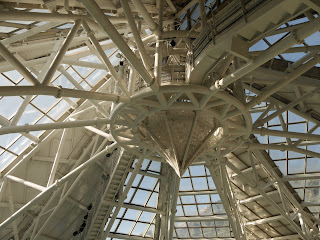The glacier either advanced from the north or receded; the climate became colder, and in the southern regions - more humid. Nature set new tasks for people, which they could solve only by developing their still very simple culture, accumulating and analyzing experience. The impact of the natural environment and the complication of human activities led to the appearance about 250 thousand years ago of an ancient variety of “reasonable man” - the Neanderthal (after the name of the German Neandertal valley, where his remains were first discovered). He already differed little from modern man, although he was roughly built, had a low forehead and a sloping chin. According to one scientist, he would not want to meet such a creature at night in a city park. But these people had a more alert mind and better adapted to the difficult conditions of the ice age than their predecessors, the Pithecanthropes, who eventually died out.
Neanderthals began to populate the previously deserted areas of southern Europe, Asia, and Africa. Enterprising and courageous, they dared to climb into the caves, where huge cave bears went to hibernate in the winter. The height of these animals reached 2.5 m, length - 3 m, and such large animals were killed by people armed with spears, stones, clubs. Huge accumulations of bear bones have been found in caves in Germany, Switzerland, Austria and other countries.
The Neanderthals improved the tools invented by the Pithecanthropes. Their form has become more regular and varied. Neanderthals wore skins and knew how to build simple dwellings, and about 60 thousand years ago they learned how to make fire. The pace of development is accelerating: the technique of stone processing is now being improved much faster than before. Let's remember how long Pithecanthropus tools existed, and tools made by Neanderthals were in use for 70 thousand years, after which they were replaced by more advanced ones.
The rather high level of development of the Neanderthals and their culture can be judged by the fact that the tools in different areas of the Earth inhabited by them were no longer as identical as before. At this time, one of the features of the culture of mankind begins to take shape - its diversity. At the same time, some signs of physical differences between the inhabitants of different regions appear, and races are formed.
